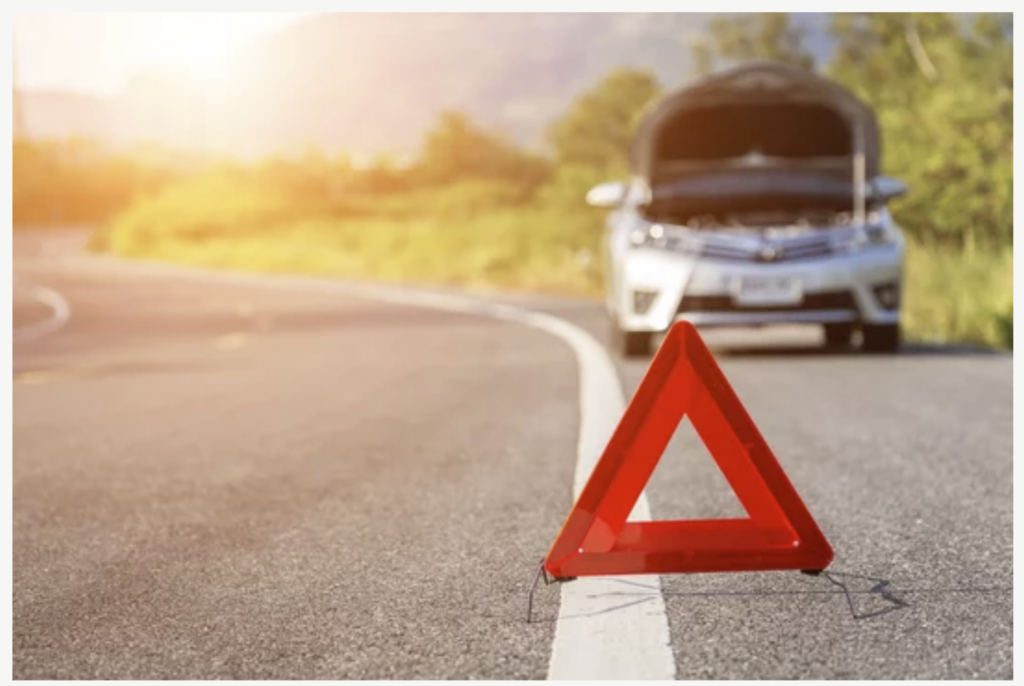Change the phrase “If it ain’t broke, don’t fix it,” to, “Prevent it from happening, catch it early.”
In other words, change or die trying!
Imagine you’re in heavy traffic and notice your check engine light keeps flashing on and off. You know something is wrong, but you haven’t had time to check it out.
While on the expressway, your car dies. You pull over and call a tow truck. You have to pay for the tow and repairs and have lost time from work and your family. Your loved ones wonder why you’re not where you’re supposed to be.

This example of your car breaking down can parallel your physical being. Imagine you haven’t been feeling great lately but haven’t had time to think about it. You could start to feel sweaty, tired, and anxious, and all of a sudden, you pass out. The next thing you know, you’re in an ambulance.
Ka-ching!
The ambulance takes you to the emergency room.
Ka-ching! Ka-ching!
The hospital bills you for the ride in the emergency vehicle along with your stay.
Ka-ching, ka-ching, ka-ching!
You and your insurance company have to pay at least $20,000 for one incident. This doesn’t include time missed from work and the worry from your family and friends and yourself! Although you’re happy to be alive, you’ll have to work harder to get healthy.
What does it cost to prevent catastrophic events from happening, and is the extra cost worth it?
How do we add years to our life and life to our years?
Many major illnesses can come from a plethora of factors—stress, pollution in the environment, prolonged sitting, heat exposure, and smoking.
Some of the top illnesses in the general population in the United States are heart disease, brain injury, back pain, respiratory failure, cancer, and septicemia, when a bacterial infection elsewhere in the body enters the bloodstream. For young people, things that end their life are accidental death from motor vehicle accidents, drug overdose, gunshot wounds, or suicide.
We don’t know where our health care industry is going, but there are ways to figure out whether preventative measures, such as exercise, healthy eating, stress reduction, leisure, and socialization, are worth it. Emotionally some arguments say it’s worth it to save our loved ones since being out of commission is time lost from work and family.
Depending on the age range, many are either underinsured or uninsured. The question lies if you don’t have health insurance, is it worth spending out of your own pocket on your health? And if the answer is yes, do you have that money to spend?
What about the utilization of health care? If you aren’t using the services, should you pay for them? The 2020 Census calculates the fastest-growing age group is 100, and by the year 2050, there will be 1 million Americans 100 and older.
Will you be among them?
Do you want to have a rich, healthy life as you age or suffer the last years of your life both physically and financially?
A study regarding health screenings in the workplace found that although the health screenings cost the company money, the employees who went through the screenings over a 5-year period saved $USD1000.00 a year on health care and had fewer incidences of catastrophic health events.
The average cost if you’re hospitalized could be anywhere within the $USD250,000 range. If you’re 50 years and older, that number could triple in cost. Even though preventative measures could impact your wallet in the short term, in the long run, you’ll save money with fewer doctor’s visits and improved health.
So, you must attempt to change or die trying! When considering the cost of your health, there are tons of gym memberships and healthier foods that can help you on the road to a healthier life. Although supplements and organic foods might be more expensive, these alternatives could be a good investment in your long-term health. If organic foods are outside of your price range, try to eat more fruits and vegetables and cut back on meats, or eat more plant-based, if possible.
Some additional costs could be monthly health insurance premiums, dietary consultations, and health screening examinations. But without these costs, if you don’t do anything to improve your overall health, you’ll likely have more hospital costs, need to take more medications, and lose potential wages. At the worst, you could lose your life.
So, it’s up to you to be the judge: if the process is broken, do you fix it? You’ve got to change or die trying.